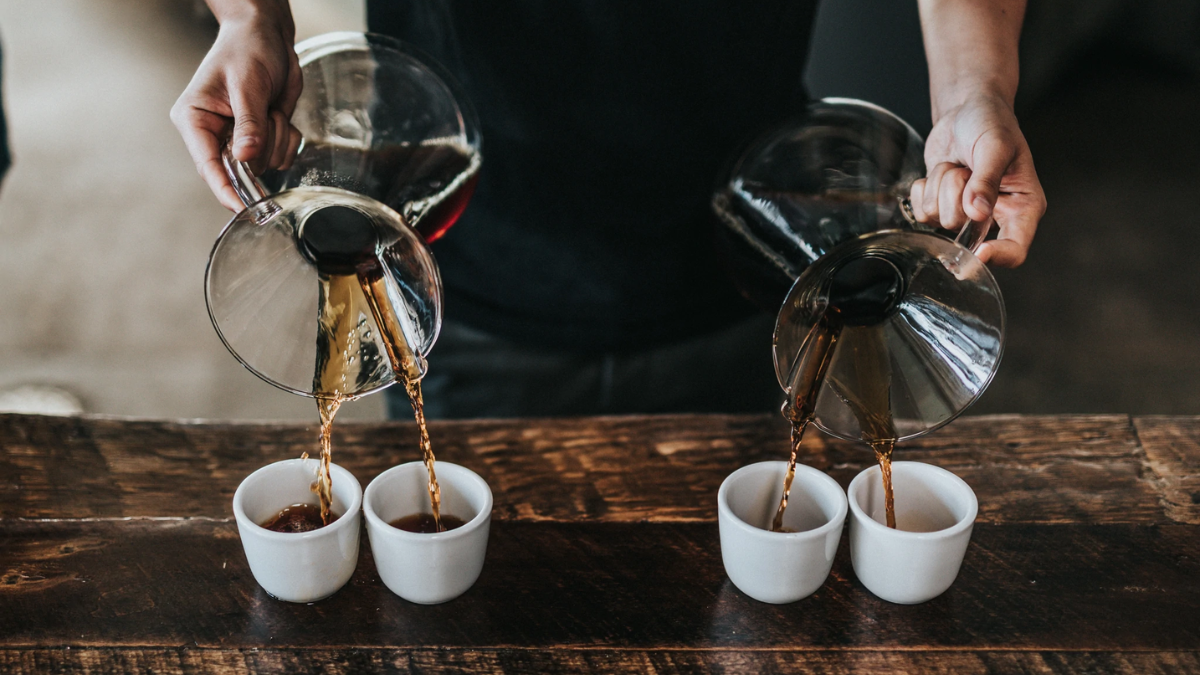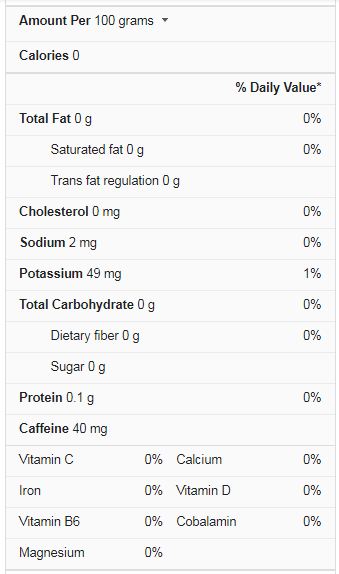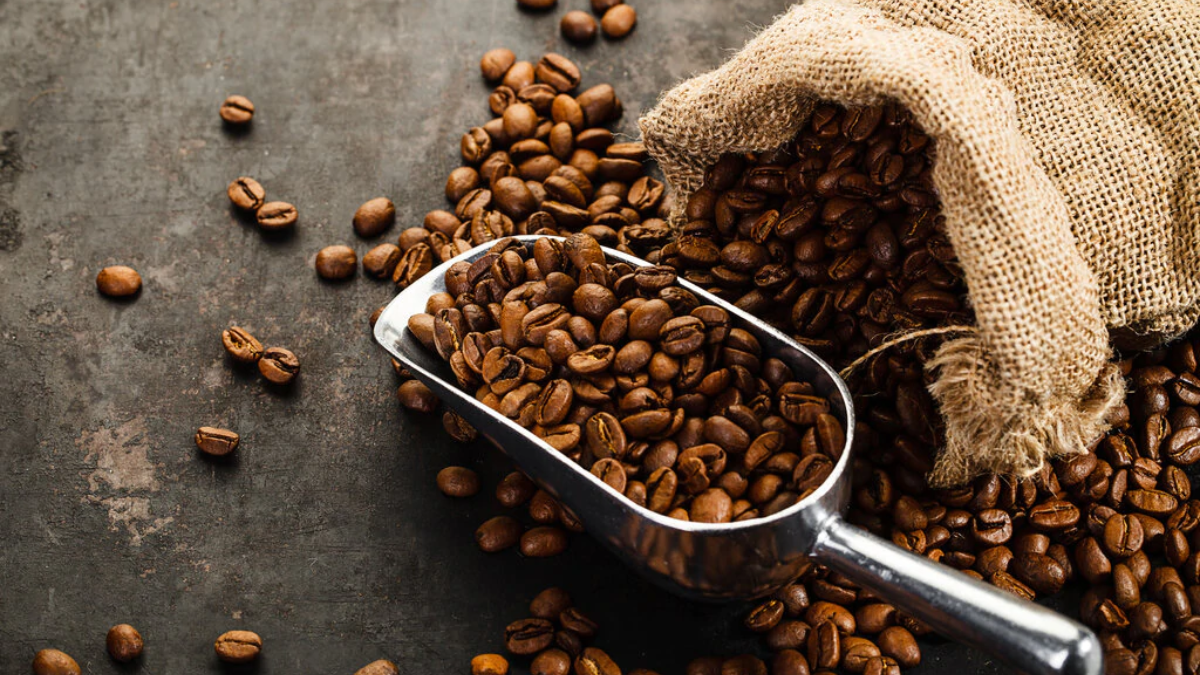Coffee is a beverage prepared from the roasted fruit of the Coffea arabica bush, known as coffee beans. Coffee is widely consumed to alleviate mental and physical exhaustion and improve mental alertness. Coffee is also used to prevent Parkinson’s disease, dementia, and various other ailments, but many of these claims are based on a lack of scientific proof.
Caffeine is present in coffee, and caffeine stimulates the central nervous system (CNS) and the heart and muscles. Other compounds found in Coffee may offer additional health benefits. Mental vigilance. Caffeine-containing liquids, such as Coffee, appear to boost alertness and clarity of thought throughout the day. Caffeine can also help you stay awake after a night of sleep deprivation. Even a single cup of Coffee can help you feel less tired and more attentive.
Coffee Nutrition Facts
What is Coffee?
Coffee is a brewed beverage made from roasted coffee beans, the seeds of certain flowering plants in the Coffea genus, and the berries of certain flowering plants in the Coffea genus. The seeds are extracted from the coffee berry to generate a stable, raw product: unroasted green Coffee. The seeds are next roasted, transforming them into a usable product: roasted Coffee, which is ground into small particles and steeped in hot water before being filtered out, resulting in a cup of Coffee.
Is Coffee a Fruit?
Have you ever wondered where Coffee comes from if you’re a coffee lover? Many people envision coffee beans growing on a plant, but they are unaware that Coffee does not begin as a bean. A coffee bean is a seed that comes from a particular variety of berries. As a result, we may say that coffee beans are derived from fruit! The beans of coffee berries are generally split in two.
However, a bean that does not split can occur in around 5% of the beans produced, and this form of coffee bean is known as Peaberry because of its shape, which resembles a pea. A coffee plant can take up to five years to yield its prized fruit, and it does not grow in all climates, and the coffee trees will require extra attention to soil to generate a healthy harvest. This restricts where Coffee can be cultivated, but the temperature in which the tree can thrive is often a warm climate found in subtropical and equatorial locations such as Latin America, the Caribbean, and elsewhere.
Harvesting and Processing
The berries are usually picked by hand or with a machine. The berry’s fruit must be removed before the beans can be extracted, and the beans must then be processed. Beans can only be processed in two ways: dry processing, which is an older method, and wet processing, which is a more recent method. The earliest way of coffee processing is dry processing. The dried processed beans are placed in the sun and allowed to dry for two weeks, turning them occasionally to ensure even drying.
Wet processing is a modern bean processing that occurs shortly after harvest. Washing and fermenting are two steps in the coffee harvesting process. The pulp left on the beans will grow softer, and the pulp will be washed away. This type of processing is now more commonly employed since it protects the beans from harm. The beans are sorted after they have been processed. The bad beans are discarded, while the good beans are packaged and transported. They’re known as “green coffee beans” at this time. There is, however, one last step: roasting the beans.
Roasting
The roasting process is an important and final phase in the coffee-producing process. To provide the perfect result, precise timing and temperature control are required. The beans will split, and their coating will be loosened as they roast.
The bean roasting recipe determines how strong the Coffee’s flavor is. The longer the beans are roasted, the more strong the flavor.
Ironically, the stronger the flavor, the more caffeine is assumed. It is, however, the exact opposite that is true. The more time the coffee beans are roasted, the more caffeine is eliminated. You can buy your beans already roasted, but many people prefer to roast their own for the freshest experience.
Remember that the name of a coffee bean line, such as Breakfast Blend, might vary from one company to the next. This is because various roasting temperatures and periods create each batch. Even a few minutes longer or shorter in the oven can change the flavor of the entire batch.
Shipping, Grinding, and Brewing
After a batch of beans has been roasted, the finished product is transported to a retailer or sold straight to the consumer. Coffee beans are shipped worldwide from Africa to Italy, Canada, the United States, and Mexico.
Coffee is served in a variety of ways by everyone. In the United States, many individuals use coffee pots to brew their Coffee. Coffee is more than the result of the brewing procedure; and it’s a long process that starts with a basic coffee berry and ends up in the cups of coffee drinkers worldwide.
Why Should you Drink Coffee?
Here are the reasons to drink Coffee:
- According to recent studies, coffee drinkers are less likely to die from coronary heart disease, stroke, diabetes, and kidney disease, among the major causes of death in women.
- That’s the theory behind studies that found that people who drink more Coffee are less likely to get type 2 diabetes.
- One to two cups of Coffee a day may help prevent heart failure, which occurs when the heart is weakened and cannot pump enough blood to the body.
- Caffeine is associated with a lower risk of Parkinson’s disease and the ability to better control movement in individuals who already have it.
- Coffee, both regular and decaf, appears to have a liver-protective impact. According to research, coffee consumers are more likely than non-coffee drinkers to have liver enzyme levels within a healthy range.
- Dark roast coffee reduces DNA strand breakage, which occurs naturally but can lead to cancer or tumors if your cells do not repair it.
How Much is Coffee Safe to Consume?
There’s indeed such a thing as too much of a good thing. Caffeinated Coffee in excess can make you jittery and cause:
- Increased heart rate
- Raised blood pressure
- Anxiety
- Trouble falling asleep
So, how much Coffee should you consume to reap all of the benefits while avoiding the bad side effects?
According to the Dietary Guidelines for Americans, most women can consume three to five cups of Coffee per day, with a maximum caffeine intake of 400 mg. (The amount of caffeine in a cup of Coffee varies based on the variety, but an average 8-ounce cup contains 95 mg.)
Also, keep in mind that the ingredients you use in your Coffee can affect how healthy it is. Instead of cream and sugar, use up to two tablespoons of milk, milk replacement, half-and-half, and naturally sweet spices and flavorings. For added taste, toss in a 14 teaspoon of the following:
- Vanilla extract
- Cardamom
- Cinnamon
- Cocoa powder
While Coffee is a fun part of your lifestyle, other aspects such as eating a balanced diet, exercising, and maintaining a healthy weight greatly impact your health. On the other hand, Coffee is a lovely complement to those important health components.
Side Effects
- When consumed in moderation, Coffee is likely safe for most healthy adults (about 4 cups per day). Caffeine-containing Coffee can cause insomnia, nervousness, restlessness, stomach upset, nausea, vomiting, and increased heart and breathing rates.
- When taken by mouth for a long time or in high doses, caffeinated Coffee is possibly unsafe (more than 4 cups per day). Caffeinated coffee consumption in excess can result in headaches, anxiety, agitation, ringing in the ears, and irregular heartbeats. Headaches, anxiety, agitation, and chest pain may occur in higher doses.
- When given rectally as an enema, Coffee is possibly unsafe. Coffee enemas have been linked to serious side effects, including death, in some people.
- In amounts of 3 cups or less per day, caffeinated Coffee is possibly safe for pregnant women. The caffeine content in this amount of Coffee is around 300 mg.
- Drinking unfiltered (boiled) Coffee raises the levels of cholesterol and other fats in the bloodstream, as well as homocysteine, all of which are linked to an increased risk of heart disease. According to some studies, coffee consumption is linked to heart attacks.
When is it OK for Kids to Start Coffee?
Suppose you order a coffee for your child while at Starbucks in America. In that case, you will be met with disapproving stares and nasty remarks about your (lack of) parental responsibilities, but is this excessive reaction to a cup of Coffee deserved? What’s the harm in offering youngsters a cup of Coffee now and then? Is it OK for them to consume this addictive beverage at the coffee age?
Most of us are aware of the negative effects of excessive caffeine consumption: insomnia, headaches, lack of focus, and an elevated heart rate are just a few of the potential side effects. It’s not a nice sensation, and it doesn’t take much caffeine to have these effects in young children, so giving your kids a double espresso in the morning is certainly not a good idea. Coffee has been suggested that coffee use by children interferes with calcium absorption and, as a result, Coffee affects their growth. However, there is little evidence to back this concern, especially because children in several Scandinavian nations begin drinking Coffee early and grow up to be perfectly healthy (and often very tall).
Conclusion
When most people think of Coffee, they think of its capacity to give them a surge of energy. According to some research, it may also have other significant health benefits. Reduced risk of liver cancer, type 2 diabetes, and hCoffeeailure are a few potential advantages.
There’s very little evidence of danger — and plenty of advanCoffee— for coffee drinkers. While 4–5 cups per day are recommended, many people may coffee more without difficulty. There’s no need to stop drinking Coffee if you enjoy Coffee and don’t suffer any negative side effects.
Experts estimate that 2.25 billion cups of Coffee are consumed Coffee worldwide. Researchers looked into the health benefits of Coffee for diabetes, cardiovascular illness, inflammatory bowel disease, and liver disease. Some, but not all, of these claims are supported by evidence.



